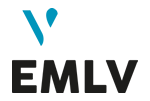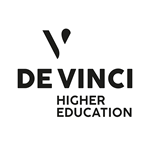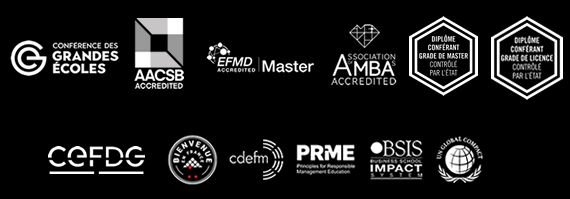Standardized testing has served as a longstanding cornerstone for evaluating both language proficiency and academic achievement. However, preparing students for these high-stakes examinations presents unique challenges for educators. Tereze Rozlapa, Language Course Coordinator at De Vinci Higher Education, recently addressed these issues during her presentation, “Teaching to the Test: Finding the Balance Between Testing Demands and Creative Pedagogy,” delivered at the EAQUALS Annual International Conference in Lisbon, Portugal.
Tereze’s talk delved into the complexities of test preparation, emphasizing the need to achieve a harmonious equilibrium between fulfilling the requirements of standardized testing and fostering engaging, personalized learning experiences.
Acknowledging the Role and Limitations of Standardized Testing
Tereze underscored the importance of acknowledging the role of standardized tests while simultaneously recognizing their inherent limitations. While high-stakes examinations serve an undeniable function in gauging student achievement, they should not dictate the entirety of the educational process.
Educators often find themselves ensnared in a repetitive cycle of test preparation drills, potentially stifling creativity and limiting the breadth of instructional methodologies employed.
The core of Tereze’s argument lies in the proposition that exam preparation can transcend merely mirroring the standardized nature of the tests themselves. Instead, educators should strive to cultivate a learning environment that adeptly addresses testing demands while simultaneously fostering creativity, engagement, and personalization.
Promoting an Interactive and Creative Approach to Learning
One of the key challenges Tereze identified is the tendency for exam preparation classes to devolve into monotonous exercises that rely on repetitive practice tests. To counter this, she champions a more interactive and creative approach to teaching, one that extends beyond rote memorization and embraces personalized learning experiences.
Tereze’s presentation underscored the significance of reimagining exam preparation classes as more than simply a means to an end.
By infusing these classes with elements of creativity, engagement, and personalization, educators can not only equip students with the necessary skills to excel on exams but also cultivate a genuine passion for lifelong learning.
Empowering Students for Success: The Paramount Objective
In essence, Tereze’s message resonates deeply with educators across the globe: while standardized tests possess a purpose, they should be situated within the broader framework of educational objectives.
By navigating the delicate balance between meeting testing demands and nurturing a dynamic learning environment, educators can empower students to achieve success not only within the confines of standardized exams but also in their endeavours beyond the classroom walls.





















